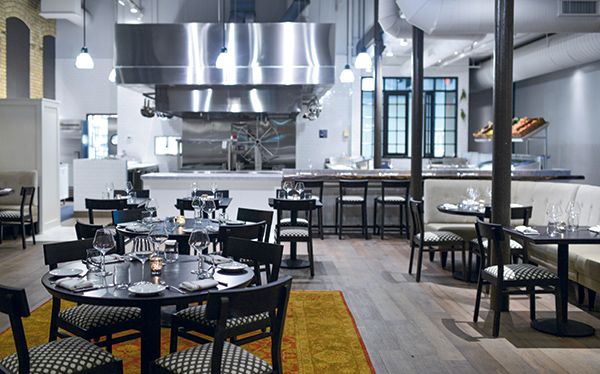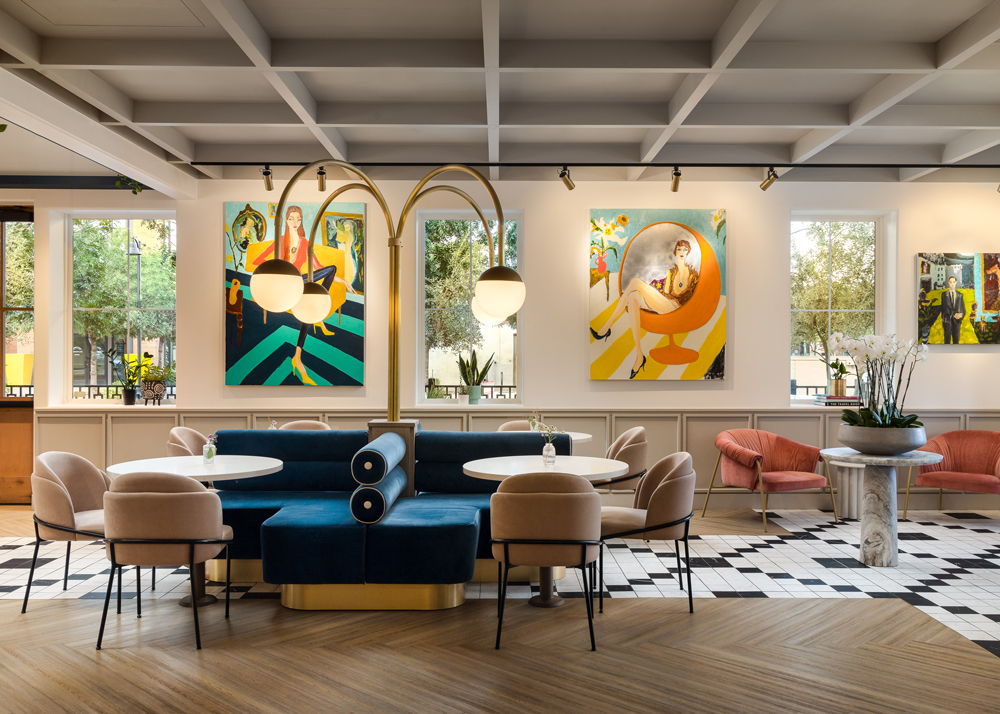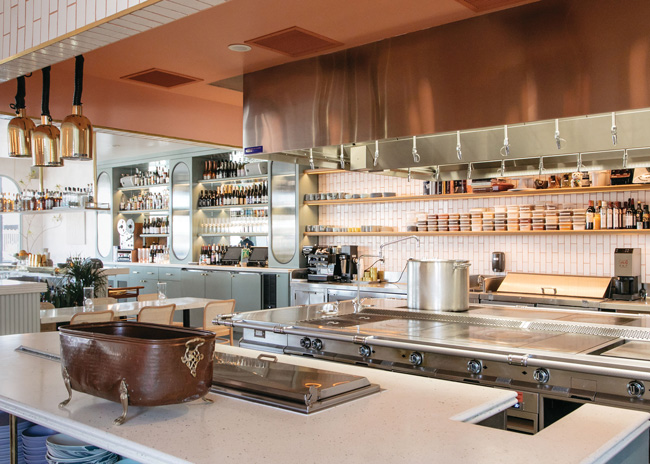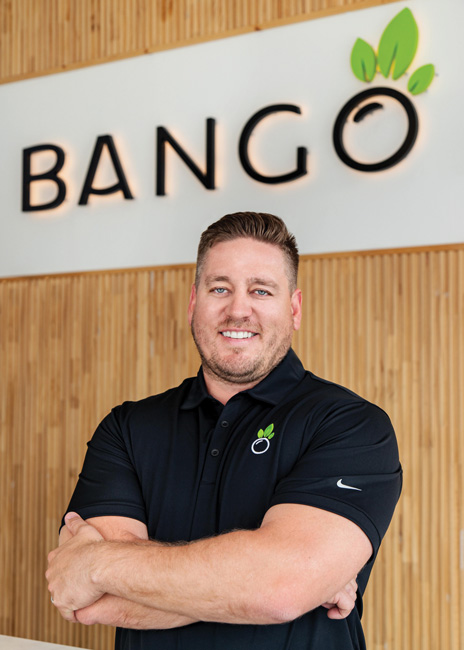 Ryan Thorman, co-founder and CEO. Images courtesy of Bango BowlsChipotle Mexican Grill, Five Guys, Panera Bread, QDOBA Mexican Eats — those are some of the most familiar names and groundbreaking concepts in the fast-casual segment that continue to set the pace in the category they helped define. But in the collective shadow of such Goliaths, there’s a slew of up-and-coming concepts — some very new, some newly invigorated and primed for expansion — keeping the category fresh, dynamic and more diverse than ever.
Ryan Thorman, co-founder and CEO. Images courtesy of Bango BowlsChipotle Mexican Grill, Five Guys, Panera Bread, QDOBA Mexican Eats — those are some of the most familiar names and groundbreaking concepts in the fast-casual segment that continue to set the pace in the category they helped define. But in the collective shadow of such Goliaths, there’s a slew of up-and-coming concepts — some very new, some newly invigorated and primed for expansion — keeping the category fresh, dynamic and more diverse than ever.
Their menus range from classic comfort and soul foods to ethnic and fusion cuisines, plant-forward, diet-friendly and indulgent vegan. Their founders include entrepreneurial immigrants, opportunity-spotting friends and family members, and even corporate chains seeking new avenues for growth. But as different as they may be, they’re all driven to satisfy consumer appetites for high-quality, flavorful foods, customization, speed and convenience while at the same time delivering unique brand experiences.
Bango Bowls
- Founder: Upstream Hospitality Group
- HQ: Long Island, N.Y.
- Menu focus: Better-for-you bowls, salads, acai, flatbreads
- Units: 7
- Average check: $18.52 per person
- Ideal unit size: 1,000 – 1,200 square feet
Launched in 2017 by a group of four friends as an acai-bowl concept located in a 300-square-foot space in Massapequa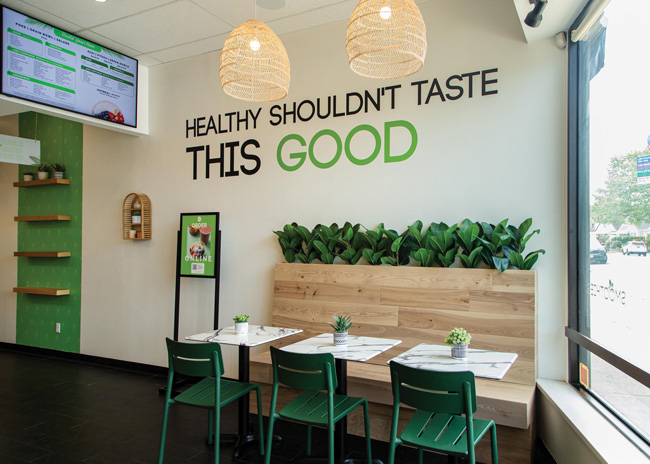 Park, N.Y., Bango Bowls has since expanded its menu, its dayparts and its prospects for growth. Currently at seven company-owned units in New York — five on Long Island and two in Westchester County — the brand began franchising this summer and recently hired its first chief development officer. It’s targeting approximately 50 new units over a five-year period in existing markets, as well as in Connecticut, New Jersey and Pennsylvania.
Park, N.Y., Bango Bowls has since expanded its menu, its dayparts and its prospects for growth. Currently at seven company-owned units in New York — five on Long Island and two in Westchester County — the brand began franchising this summer and recently hired its first chief development officer. It’s targeting approximately 50 new units over a five-year period in existing markets, as well as in Connecticut, New Jersey and Pennsylvania.
Co-founder and CEO Ryan Thorman says that while Bango Bowl’s menu now includes a wider variety beyond the original acai bowls, including customizable and curated salads, warm grain bowls, panini-style sandwiches, avocado toasts, poke bowls, smoothies and a selection of breakfast items, operations remain simple, scalable and cost-effective.
“Our small footprint and digital, off-premises-focused model — a little more than 95% of sales are takeout — allow for a lot of flexibility in terms of real
estate,” Thorman says. “We typically only have four to eight seats inside. There are many more options on the [real estate] market for smaller spaces, and that also means lower costs.”
Technology, Thorman adds, also plays a major role in keeping costs low. Kitchens are hoodless, for instance, relying on programmable, ventless cooking equipment. “We don’t have chefs or line cooks,” he says. “Our busiest stores have prep cooks, but our combi ovens ensure consistency and quality. We hire a lot of young staff members with no culinary training but can still execute a high-level scratch kitchen, including cooking all of our proteins, roasting our vegetables and making our dressing in-house.”
Menu best sellers include the Bango Bowl, featuring acai with a variety of fresh fruits, granola and honey; the Harvest Bowl, with brown rice, kale, roasted chicken, roasted brussels sprouts, goat cheese, roasted sweet potatoes, toasted almonds and balsamic vinaigrette; and Sweet Potato Cobb Salad, with chopped romaine, roasted chicken, sweet potatoes, grape tomatoes, sliced avocado, bacon, egg, parmesan and lemon-basil ranch.
Thorman adds that the brand’s better-for-you menu positioning appeals to women, in particular, and that its newest design was developed with that demographic in mind. “We knew we needed an updated look as we set out to grow,” he says. “We now use a lot of light woods, white and pops of green. Our brand is built on positivity and the new look reflects that.”

